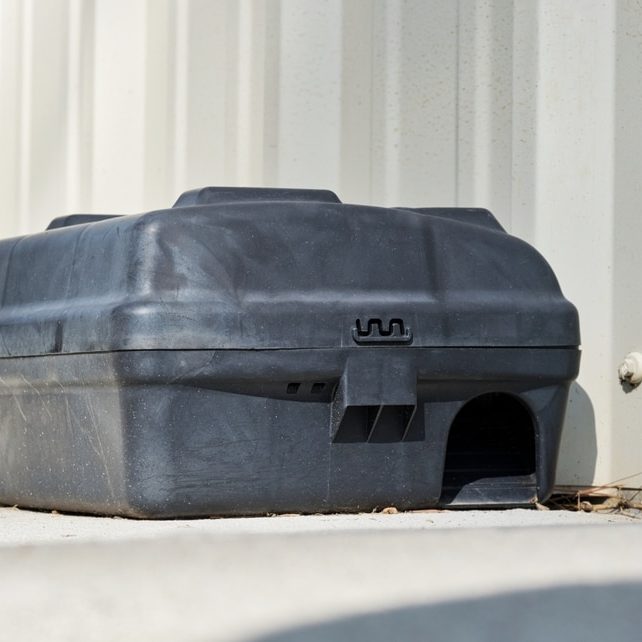Allergies and asthma are more than just seasonal annoyances for many homeowners—they’re ongoing health challenges that can significantly impact quality of life. While pollen, dust, and pet dander often get the blame, there’s another culprit lurking in many homes: pests. Cockroaches, rodents, and stinging insects are more than a nuisance; they’re also major contributors to indoor allergens and asthma flare-ups. Fortunately, effective pest control can help protect your family from these hidden dangers.
In this post, we'll explore how pests can trigger allergies and asthma, why professional pest control is essential, and what homeowners can do to maintain a healthy, pest-free environment.
Common Pests Linked to Allergies and Asthma
When you think about pests, you might imagine the annoyance of ants in the kitchen or the fright of spotting a spider in the basement. But certain pests are notorious for causing allergic reactions and asthma attacks—right inside your own home.
Cockroaches are among the most common triggers of indoor allergies and asthma. Their droppings, saliva, and shed skin contain potent allergens that can easily become airborne. Even a small cockroach problem can release enough allergen particles to affect sensitive family members, especially children and the elderly.

Environmental and Structural Factors Affecting Indoor Allergens
Pest control isn’t just about removing the pests you can see—it’s also about addressing the environmental and structural factors that let them in and allow allergens to build up.
Most pests, especially cockroaches and rodents, seek out moist environments. Leaky pipes, damp basements, and poorly ventilated attics provide perfect breeding grounds. By addressing moisture issues, you make your home less inviting to pests and reduce allergen accumulation.
Tiny cracks in foundations, gaps in windows, and loose siding offer easy access for pests. Sealing these entry points is a critical part of any pest control plan and helps prevent future infestations.
Proper storage of food, frequent cleaning, and prompt garbage disposal eliminate attractants for pests and help minimize allergen build-up. Pay special attention to kitchens, pantries, and pet feeding areas.
Sometimes, allergens accumulate in places you can’t easily clean—behind walls, under appliances, or deep in attics and crawlspaces. Professionals have the tools and expertise to treat these hard-to-reach areas.
The best way to prevent pest-related allergies and asthma is through Integrated Pest Management (IPM), a comprehensive strategy that combines multiple tactics for long-term, safe, and effective results.
What Is Integrated Pest Management?
IPM is a holistic approach that combines:
- Inspection: Identifying pests and assessing risk factors
- Exclusion: Sealing entry points and correcting moisture issues
- Treatment: Using targeted pest control products when necessary
- Monitoring: Ongoing inspections and adjustments
Chemical and Non-Chemical Solutions
IPM isn’t just about spraying chemicals everywhere. It combines non-chemical strategies—like caulking, cleaning, and habitat modification—with judicious use of safe, effective treatments. This reduces your family’s exposure to both pests and unnecessary chemicals
Long-Term Benefits
By focusing on prevention as well as elimination, IPM protects your family’s health now and in the future—making it the gold standard for allergy and asthma prevention.

Educating Homeowners: Your Role in a Healthy Home
Pest control is most effective when homeowners are active participants. Understanding how pests affect allergies and asthma, and working in partnership with your pest control specialist, can make a world of difference.
Common Misconceptions
- “If I don’t see pests, I’m safe.” Many pests are nocturnal or hide in inaccessible areas. Allergen levels can remain high even without visible pests.
- “Cleaning alone will solve the problem.” While cleaning helps, it doesn’t address infestations or hidden allergen sources.
- “All pests are the same.” Different species produce different allergens and require different control methods.
The Importance of Regular Inspections
Routine professional inspections help catch problems early, preventing allergen build-up and protecting your family’s health year-round.
Steps Homeowners Can Take
- Schedule regular pest inspections
- Address moisture issues promptly
- Store food in sealed containers
- Clean up pet food and water dishes
- Dispose of garbage frequently
- Work with your pest control provider on an ongoing basis
At Emtec Pest Control, we are committed to safe and responsible pest control. We understand that your family’s safety is your number one priority, so we make it our priority, too.
If you have any other questions about any of these pests or pest control for your home or business, contact your Oklahoma pest control experts at Emtec Pest Control by calling us or by filling out our online contact form.
